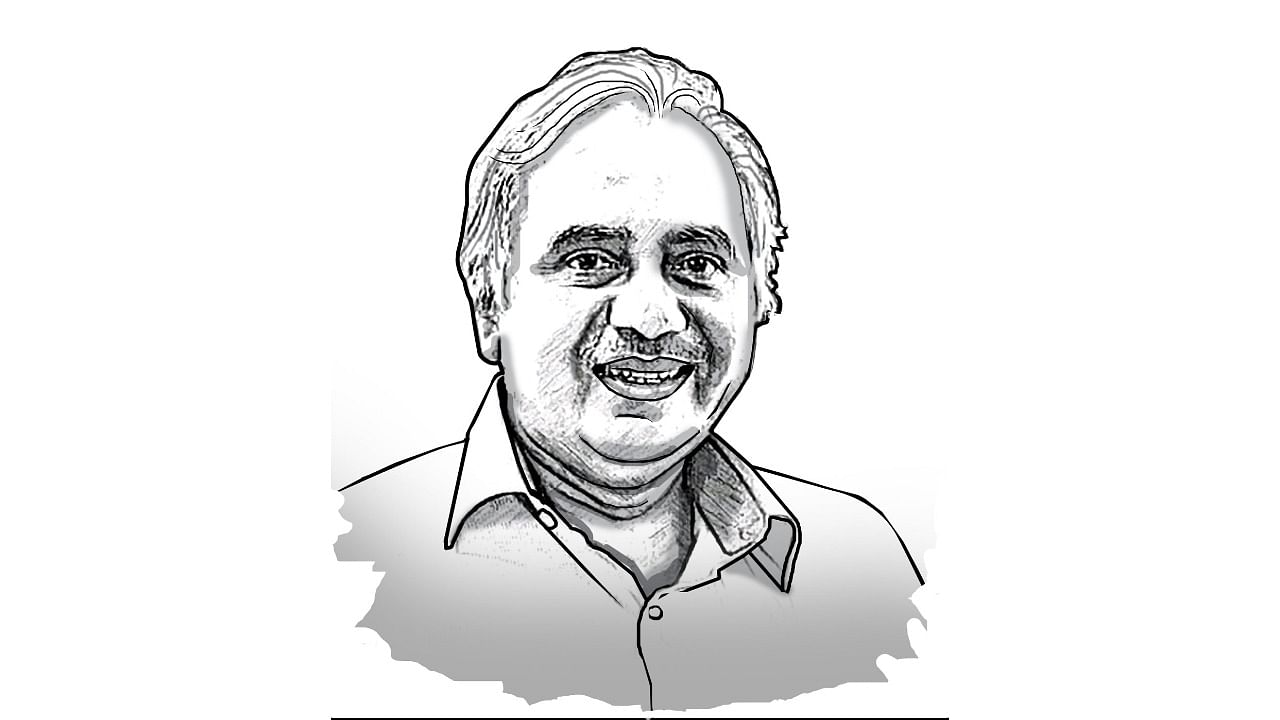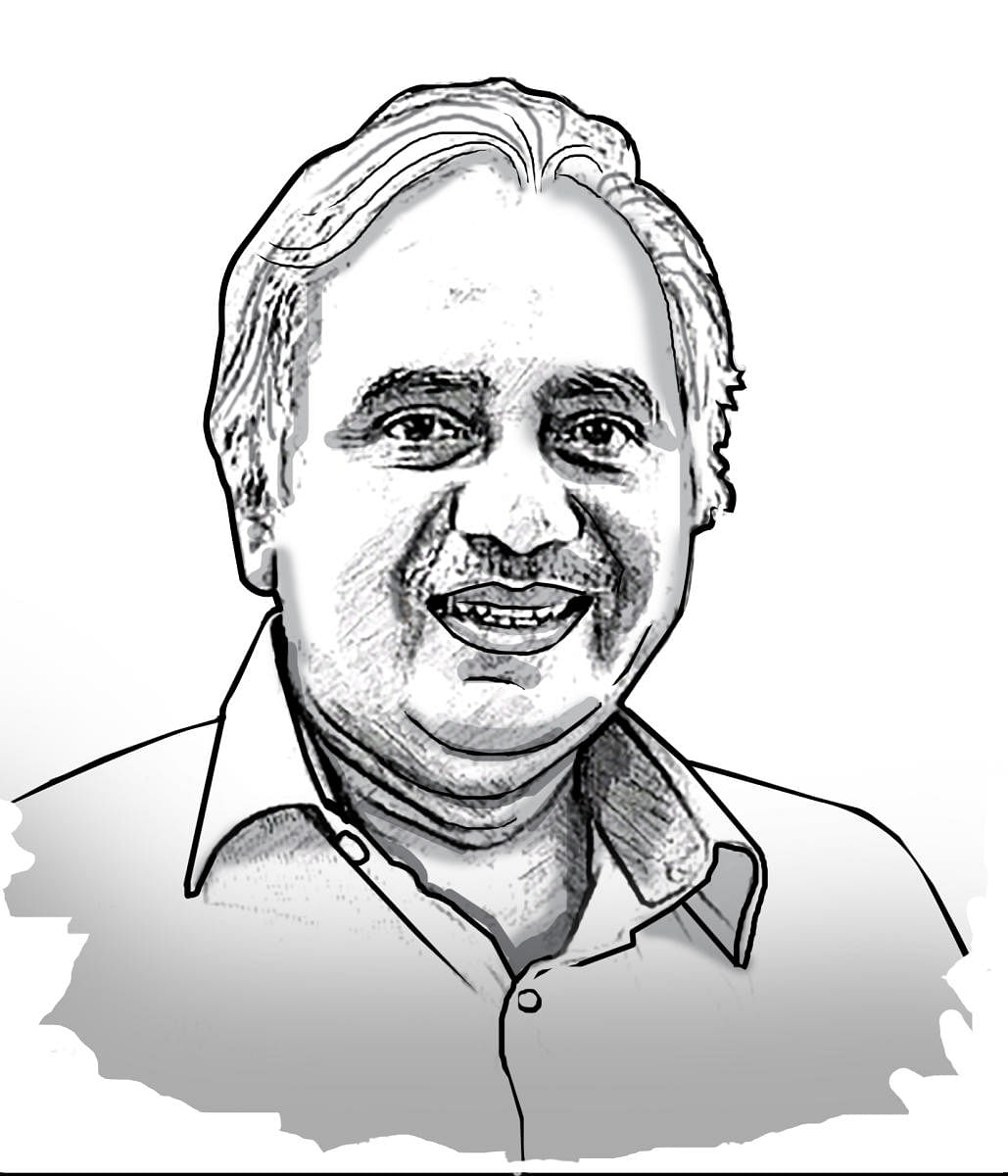
Seshadri Chari reads between the lines on big national and international developments from his vantage point in the BJP and the RSS. @seshadrichari
Credit: DH Illustration
One strange irony of the 2024 general election result is that the party which has won nearly 240 seats is going through low-key celebrations while the coalition of some 20-odd parties which collectively could not match the number of seats that the BJP alone got is gloating over its “victory”. The reasons for this are not difficult to gauge.
Even before the elections were announced, Narendra Modi had vowed to win more than 400 seats and even decided to put in place an action plan for the first 100 days of his third term. His opponents had no such plans, nor any substantive points for criticism of Modi government’s 10 years of functioning. So, when the BJP fell short of numbers, it felt the pain of not being strong enough to go ahead with its agenda freely. The Opposition is simply happy that it has averted total decimation. That is its “victory”.
The results hold lessons for all political parties, and for the political class as a whole. For two consecutive terms, the BJP had 282 and 303 seats on its own in 2014 and 2019, respectively, heading an NDA government without having to suffer the compulsions of coalition politics. More than 30 seats short of simple majority this time, now the Prime Minister has to run a real coalition government. The party and Modi therefore, though experienced in coalition politics, will have to tread cautiously. Many of the core issues, like Uniform Civil Code, may have to wait. There are reports that the coalition partners are not averse to UCC, provided there is sufficient consultations with all stakeholders. To work in a consensual mode is the challenge now. It may be easier to do so in foreign policy and economic reforms.
Ministries whose subjects are in the Concurrent List, as many as four dozen subjects, may become bones of contention. It is here that the PM and his party will have to be cautious so as not to step on the toes of partners. In the last two terms, many appointments to coveted positions in academia and public sector institutions were easily done by functionaries from peripheral organisations attached to the ideological parent body, which in the new circumstances could be interpreted by the coalition partners as interference by extra-constitutional authorities.
The experienced administrator that he is, Modi has never allowed any such interference in matters of governance during the last two terms, or for that matter in Gujarat where he was Chief Minister for three consecutive terms. In his third term as PM, too, this may not be difficult to maintain.
The real challenge for the PM will be to devote time for macro-economic policies and programmes and to respond to the ever-changing geopolitical dynamics. Though these two aspects of governance may appear to be unconnected, in reality, India’s standing in the international arena is closely intertwined with economic progress and domestic political stability. Modi will need a strong party apparatus and the support of trusted think-tanks to do the thinking part and suggest actionable policy formulations.
There was a time when the BJP could boast of as many as 60 policy cells, each devoted to one subject, from foreign policy to even rainwater harvesting, literally functioning as a shadow secretariat. The party may have to revive this system again to lessen the burden on the head of government. Such teams in the party also functioned as a bridge between the government and the stakeholders of various welfare programmes. One of the reasons for the setback in seats for the BJP in this election is attributed to this missing link between the government and the party.
Another aspect of the election result is the resurrection of the Opposition, which was almost irrelevant in the last 10 years. Though fragmented ideologically and divided by political self-interest, often leading to not-so-friendly contests against one another in the states, the Opposition has a decent number of MPs in parliament, with Congress as the major group. So, it is a BJP-led government versus a Congress-led Opposition. It is for both the national parties to converge on issues of national importance such as security and economic policies. While building consensus is the responsibility of the government, the Opposition would also gain by behaving responsibly and rising to the occasion whenever the national interest demands.
The humble but astute electorate has clearly said what it wants: A strong but consensual government, but equally a strong and effective Opposition. They could both start performing their roles through a new, less acrimonious Lok Sabha. People deserve this gift in return for their votes.
